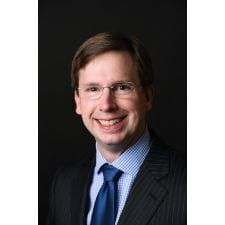BY GABRIELA CIPOLLA – ARTS & LEISURE EDITOR
The path to academia is not always filled with professorial tweed and elbow patches from the beginning. At least, not for Tom Allen–Centre’s newest Computer Science professor. Dr. Allen recently completed his doctoral studies this past spring at the University of Kentucky, but his journey to Centre College was not that of a typical computer scientist.
Before Dr. was part of his signature, Tom Allen worked as a minister. After completing his undergraduate degree in computer science at Georgia Tech, he attended the Southern Baptist Theological Seminary in Louisville, Kentucky. Dr. Allen felt that ministry was a very good fit for him for the first ten years of his adult life, but soon he began to notice some intractable problems that arose in his work.
“I began asking questions that interested me,” he explained, “I worked with a lot of older people and saw the problems that their families had trying to take care of them.” Dr. Allen expressed the difficulty that many adults face in caring for their older relatives. The pressure, time, and expense to aid the ones they love with boundless attention is too arduous a task for many working families.
“Sometimes they just want to go to the grocery for a minute without worrying,” he expressed, “so I started to think about what kinds of computer systems could be developed to watch over someone…or help them live in their home a little longer.”
Even someone who has trouble figuring out how to convert docx to pdfs, let alone consider developing complex code, can at least understand the human desire to take care of the people you love. Dr. Allen’s inspiration came from observing that desire within his church and moving towards a solution that could truly improve the quality of life for caretakers and the people they care for. The removal of agency that comes with diseases such as Alzheimer’s or ALS makes miniscule decisions and actions extremely taxing–but with Artificial Intelligence, these daily stressors can be reduced significantly.
The exploration of these questions all occurred during Dr. Allen’s years as a minister, but he soon realized that he was heavily relying on the things that he learned from his time as an undergraduate computer science major. “This is an AI question,” he thought, “it’s the kind of thing that is intuitive for a human being but difficult for a machine.”
Questions such as, “How can we write a program to set the temperature of someone’s house to a comfortable, but variable, level?” and “How can we write a program to make sure a Dementia patient doesn’t leave his house without wearing pants?” guided Dr. Allen’s journey back to computer science.
For a human being, deciding what to eat for dinner is fairly easy–unless you’re a Centre student and the pickings in Cowan are slim. Our decisions are based on preference and alter according to our setting, temperament, and a myriad other factors. It would be very easy to construct a program that helps you decide what to eat for dinner every night–“assuming you want to eat the same thing each day,” Dr. Allen explained, “and that is where it gets difficult.”
“We are really bad about consistency,” he noted. “You can ask someone to rank their top ten movies from ‘worst’ to ‘best ever,’ and within five minutes, that ranking may change.” Accordingly, much of the research that Dr. Allen is primarily interested in is studying conditional preference. “Humans are really messy,” he concluded, “there is a lot of noise in our decision making, which makes it harder to sift through the data.”
Although complex computer science guides the solution to these issues, at the core of the problem is something we can all relate to: freedom. How can we assure that even from the confines of a wheelchair or the confines of one’s own brain that freedom is still available? How can we retain the agency of those who have lost core bodily functions?
Dr. Allen’s unique path to professorial life is encouraging for those who are undecided about their future. Sometimes it takes years to find what you are truly passionate about. But when you find it, as Dr. Allen has, you are more well rounded and prepared to seize your life and affect real change.

